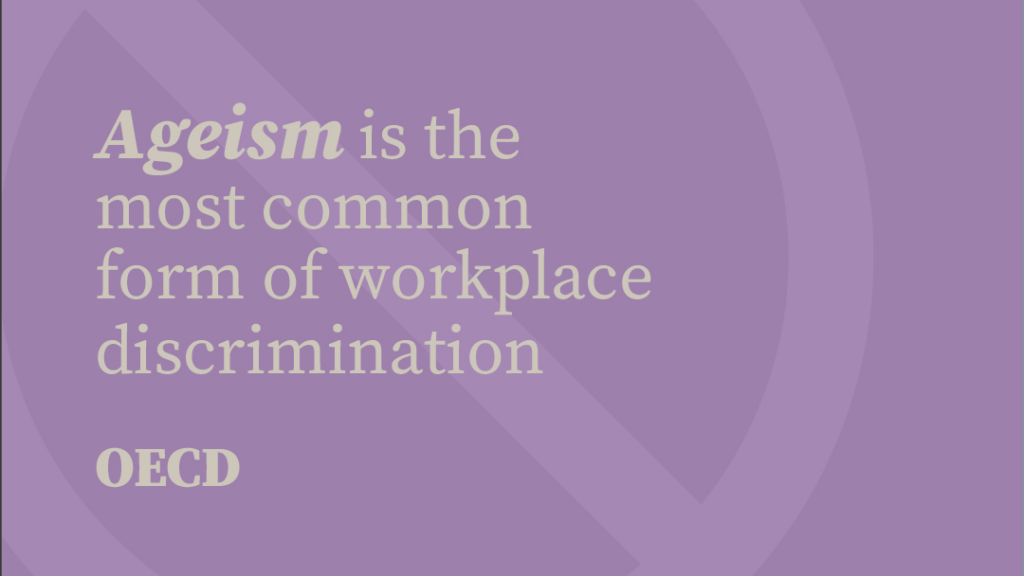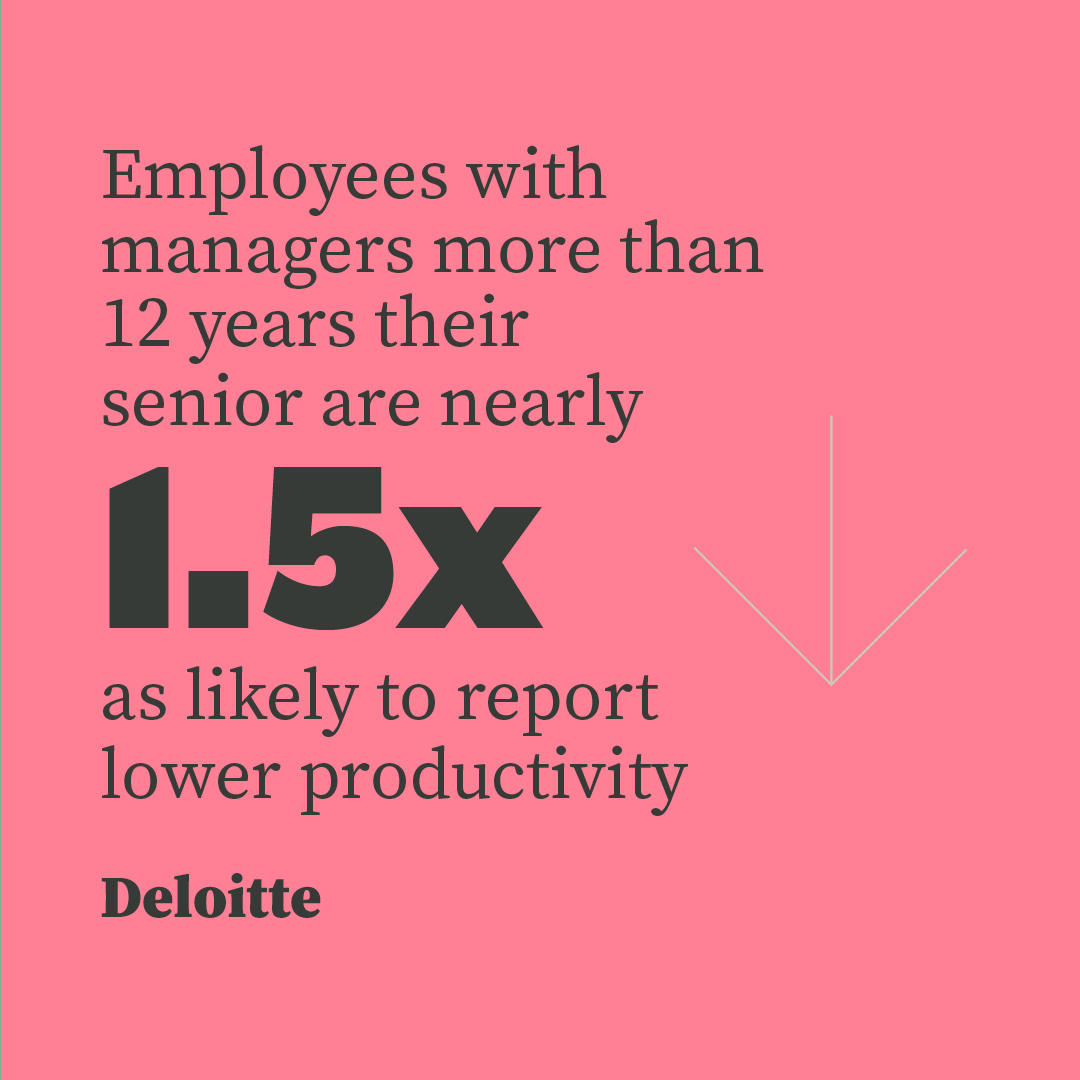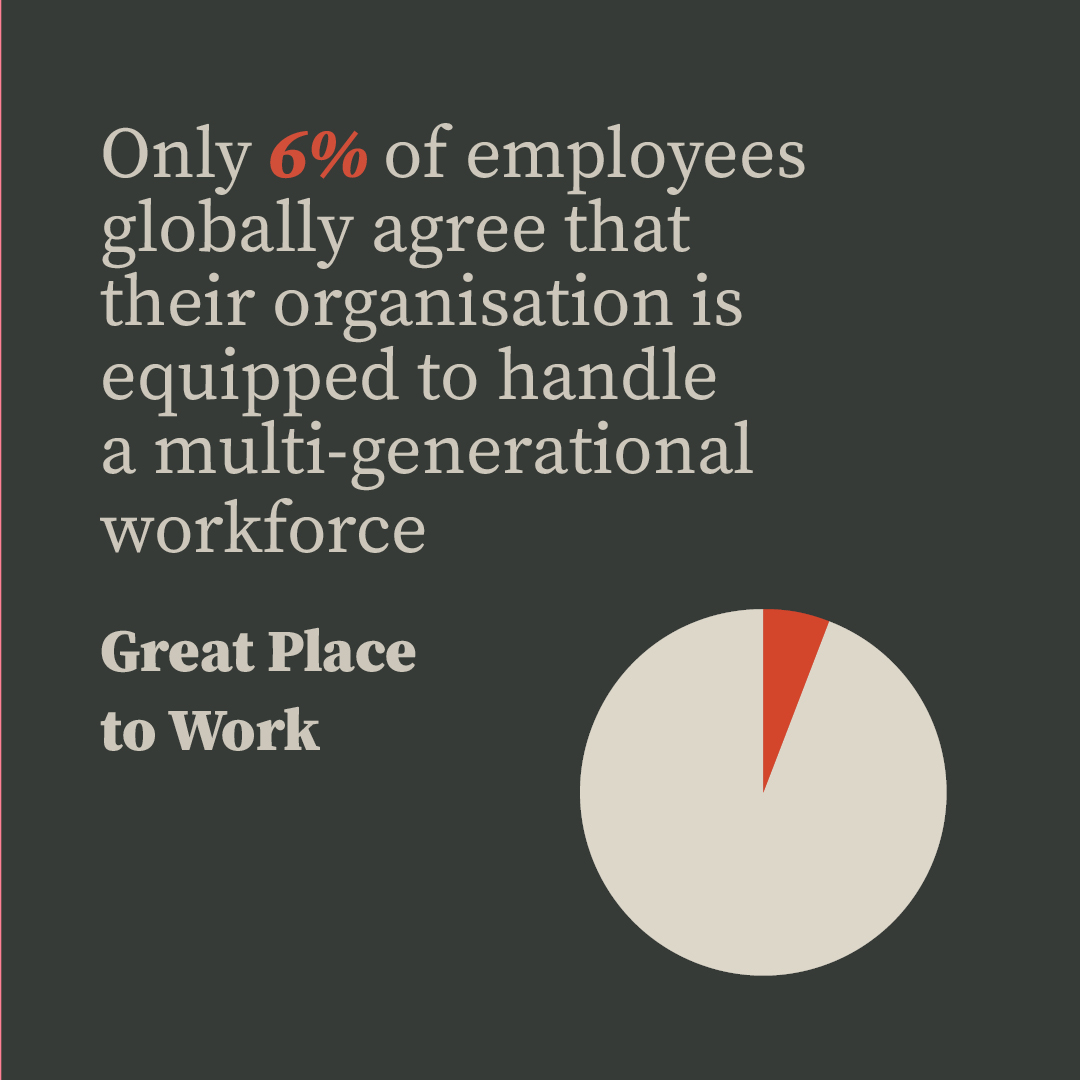By Sally Pritchett
CEO
We tuned in to the voices of the multi-generational workforce, uncovering strategies to improve relationships, enhance communication, and boost productivity.
The global population is ageing, resulting in the workforce becoming increasingly multi-generational, with up to five generations working side by side. And this shift is not without its challenges.
At Something Big, we strive to make workplaces fairer, healthier and happier for everyone. But with only 6% of employees agreeing that their leaders are equipped to lead a multi-generational workforce effectively, it’s time for businesses to ensure generational differences are positively impacting relationships, communication and productivity.
To create inclusive workplaces where employees feel safe to be themselves, do their best work, and thrive, we need to listen and learn from different communities, and so we provided a platform for these voices to be heard.
We were delighted to welcome Sophie O’Brien, Founder of Pollen and Tim Whitaker, Trustee and Director of Wise Age for a conversation on uniting the multi-generational workforce. Pollen is a platform dedicated to connecting junior talent with meaningful job opportunities and giving them the resources and guidance they need to succeed, while Tim is a consultant and writer on age and employment issues with various organisations.
Together we tuned in to the voices of the multi-generational workforce, uncovering strategies to improve relationships, enhance communication, and boost productivity.
Tackling harmful generational stereotypes
The workforce is ageing, with projections indicating that by 2050, one in four people in the UK will be over 65. At the same time, Gen Z is now entering the workforce in increasing numbers and is expected to make up 30% of the working population by 2030. During the conversation we discussed how individuals and organisations often make age-based assumptions, relying on stereotypes that can often be harmful, with age discrimination particularly affecting younger workers who are starting their careers and people aged 50 and over.

Organisations need to avoid blanket expectations for any generation. We discussed how all generations seek meaningful purposeful work and are now looking for greater flexibility, whether for a better lifestyle or caregiving responsibilities. Leaders and managers need to have human conversations on an individual level to discover what is motivating and hindering employees regardless of their age, and to address these needs.
Supporting Gen Z in the workplace
Sophie shared her experiences supporting Gen Z, who are now entering the workforce and looking to be heard. Gen Zers are often feeling frustrated from being stereotyped as lazy, entitled, and with short attention spans. Instead, Sophie’s experience has found a generation of researchers and multitaskers, who value productivity, are seeking better communication from their employers, and want the opportunity to contribute their ideas.
Organisations need to communicate clearly about where and how Gen Z employees can add value. We need to get better at listening to their ideas and providing opportunities for them to voice their opinions. We know that increased hybrid and remote working may be limiting the access of Gen Z to development opportunities, so mentorship and clear communication guidelines are essential.
Supporting older generations in the workplace
With around one in three UK workers aged 50+, older workers are the fastest-growing employment group. Organisations must learn to better recruit and retain older workers, who often face misconceptions about their flexibility, digital skills, and career trajectory. Ageism is all too often impacting older workers’ access to training and advancement, while bias and age discrimination is being internalised, leading to a lack of self-confidence.
Older workers want to be valued for their experience and knowledge and to be part of the inter-generational exchange. They are seeking flexibility, perhaps to manage health issues or caregiving responsibilities, but also for a better work/life balance. By addressing these needs and creating an inclusive culture that supports older workers, businesses can benefit from their valuable expertise and contributions.
Promoting better inter-generational communication
Effective communication is vital for building relationships, enhancing productivity, and creating successful companies. Whereas poor communication kills culture, erodes trust, and harms businesses. There is a generational communication challenge, as the etiquette of professional communications has evolved. It’s now essential to navigate the variety of different communication channels available without leaving anyone behind.
During the meeting, we discussed the following strategies to improve multi-generational communications:
Establishing clear communication guidelines
Organisations should establish clear communication norms and expectations to ensure everyone is on the same page. This would include guidance on:
- When an audit trail is required for formal communications
- When informal channels like instant messaging are appropriate
- Expected response times across different communication modes
While overarching guidelines are important, teams should also have the flexibility to determine the specific tools and styles that work best for their needs and dynamics.
Promoting cross-generational learning
Skill-sharing across generations could be highly beneficial for fostering effective communication. For example:
- Older workers can share their expertise on meeting etiquette, professional writing, and interpersonal communication skills.
- Younger employees can introduce and train their colleagues on newer communication tools, platforms, and best practices.
This sharing of knowledge not only improves communication but also promotes collaboration and understanding between different age groups.
Adapting communication styles
It’s important to recognize that communication formalities and response time expectations may differ across generations, potentially leading to misunderstandings.
- Communicators should adapt communication styles to the recipient’s preferences, rather than expecting everyone to conform to a one-size-fits-all approach.
- It will likely be a process of trial and error to find the right communication culture that works for each team and the business as a whole.
Effective communication is an art that requires intentionality and adaptability, especially in a multi-generational workforce. Businesses must take on the challenge of tailoring their communication approaches to meet the diverse needs and preferences of their employees.
Fostering multi-generational collaboration and enhancing productivity
We can’t sleepwalk into a cohesive multi-generation workforce, and it will require efforts beyond HR and DEI teams, with senior leaders across the business needed to make a meaningful change.
To enhance collaboration and boost productivity across generations, several strategies were discussed:
Engaging in meaningful conversations
Businesses need to go beyond surface-level staff satisfaction surveys and engage in deeper conversations with employees from different generations. Leaders need to actively listen to understand the issues and unique needs of each age group.
Managers should consider conducting structured career discussions to gain insights into individual goals, aspirations, and challenges. This open dialogue can help tailor support and development opportunities to better meet the diverse needs of a multi-generational workforce.
Flattening hierarchies and empowering all voices
One recurring topic was the challenge posed by traditional hierarchical structures. Companies that foster a more collaborative and inclusive culture often have flatter organisational structures, enabling better multi-generational collaboration.
In such businesses, there are opportunities for all employees, regardless of age or experience level, to contribute their ideas and perspectives meaningfully. Processes should be in place to ensure that every voice is heard and valued, promoting a sense of belonging and engagement across generations.
Redefining career paths
Traditional career paths often follow a hierarchical progression, which may not align with the evolving needs and aspirations of a multi-generational workforce. Businesses should explore ways to create alternative career paths that allow for more flexibility. For example, experienced workers nearing the end of their careers could transition into roles that leverage their expertise and knowledge, while stepping away from full-time, high-pressure roles. This approach not only retains valuable institutional knowledge but also empowers these employees to continue making meaningful contributions.
By nurturing a culture that values all generations’ perspectives and focuses on common goals like meaningful work and business success, organisations can foster collaboration among their multi-generational workforce. This, in turn, can boost productivity and drive innovation.
Uniting the multi-generational workforce
Bridging the generational divide requires a multi-faceted approach – dismantling harmful stereotypes, supporting the unique needs of different age groups, fostering open and inclusive communication, and actively promoting collaboration across generations.
While sensationalised generational rhetoric may attract attention and clicks, it is unhelpful and encourages an exaggeration of differences between generations. Instead, we need to focus on what unites the workforce – the shared desire for meaningful work, growth opportunities, work-life balance, and a sense of purpose.
We’re passionate about making workplaces fairer, healthier and happier for all through better communications. If you’re ready to make an impact on your workplace culture, get in touch to see how we can help you create a more collaborative, productive, and successful multi-generational workforce.
Watch the video: Uniting the multi-generational workforce


